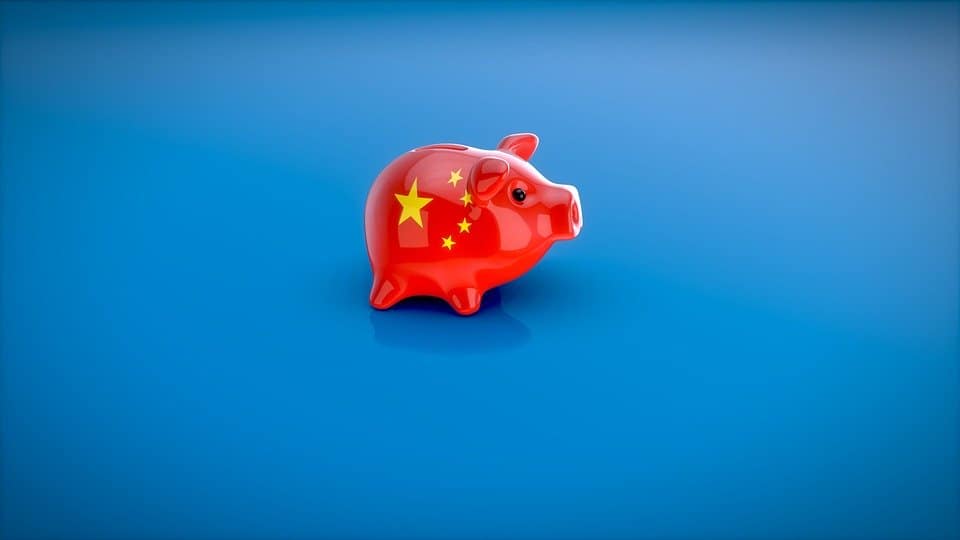China’s top government authority has issued a directive to increase the role of the independent directors of listed companies, in a bid to curb malfeasance on the country’s capital markets.
The State Council recently issued the “Opinions on Reforming the Independent Director System of Listed Companies” (关于上市公司独立董事制度改革的意见).
The Opinions provide unprecedented clarification of the role of independent directors, stressing their decision-making and supervisory role, as well as outlining new mechanisms for them to better perform their official duties.
They outline reform goal across a total of eight areas, including clarifying the position of independent directors, optimizing their performance methods, strengthening appointment and management, improving selection systems, enhancing performance protections, improving restraint mechanisms, and improving the supervisory system.
CSRC wants independent directors to curb malfeasance
Officials from the China Securities Regulatory Commission (CSRC) said stepping up the role of independent directors could help to curb malfeasance on China’s capital market, including financial fraud and the use of affiliate transactions by key shareholders to undermine the interests of listed companies.
In November 2021, a Chinese court ruled that five independent directors of Kangmei Pharmaceutical (康美药业) were jointly liable for compensation in relation to false statements made by the company, triggering widespread discussion on the duties of independent board members.
China has since seen calls for further clarification of the role of independent directors, optimization of their supervisory methods and performance protection measures, as well as strengthening of their supervisory and management roles.
“Playing a supervisory role is the core role of the independent director system of listed companies,” a CSRC official said. “In the past, an unfocused and disorganised job scope has resulted in the poor performance of independent directors.”
“Previously, the legal responsibilities of independent directors and non-independent directors tended to be ‘homogenized,’ lacking detailed standards for the responsibilities of independent directors, and failing to take into account the information asymmetry caused by the external status of independent directors and their dependence on the cooperation of companies in performing their duties,” said Tang Xin (汤欣), a professor at the law school of Tsinghua University.
“The mechanism of unequal rights and responsibilities not only hinders the motivation of independent directors to be diligent and responsible, but may also lead to the phenomenon of ‘bad money driving out good.'”
Tang said the “joint but differentiated legal responsibilities” proposed by the Measures could play a significant role in increasing the ability of of independent directors to perform their duties.
Greater clarification of independent director duties
In order to better employ their supervisory role, the Opinions state that the focus of independent directors should be on potential conflicts of interest between controlling shareholders, actual controllers, directors, and members of senior management.
The Opinions strengthen the supervisory role of independent directors in key areas including related-party transactions, financial reports, the appointments and dismissal of directors and members of senior management, and remuneration levels.
“Further clarifying the supervisory role of independent directors in these key areas is conducive to solving the problem of the generalized responsibilities of independent directors, making their supervisory responsibilities more focused, promoting board decision-making in line with the overall interests of the company, and protecting the legitimate rights and interests of small and medium shareholders,” said Jiang Daxing (蒋大兴), a professor at the law school of Peking University.
Creation of institutional mechanisms for independent directors
While the status of independent directors as objective and neutral board members is the key to their effectiveness in a supervisory role, this “outsider” status also makes it easy for independent directors to lack support within listed companies.
The Opinions seeks to address this problem by optimizing the way in which independent directors perform their duties. A CSRC official said the Opinions outline two key means for empowering independent directors to exercise their duties more effectively:
- Creating an effective platform for independent directors to perform their duties. This involves improving the specialized committee mechanisms of the board of directors where independent directors are the majority, such as audit, nomination, and remuneration committees, and establishing a specialized meeting mechanism that is entirely comprised of independent directors.
- Elevating the supervisory role of independent director committees. Key matters such as financial and accounting reports as well as their disclosure should be approved by the audit committee before undergoing deliberation by the board of directors, and potential major conflicts of interest such as related party transactions should be discussed by special meetings of independent directors before undergoing deliberation, thus increasing the “voice” of independent directors in key supervisory areas.
“The key highlight of the ‘Opinions’ is the addition of specialized meeting mechanisms and other means of performing duties that distinguish independent directors from other directors, promoting a transformation of personal duties into organizational duties,” said Zhang Yuewen (张跃文), a researcher at the Financial Research Institute of the Chinese Academy of Social Sciences.
“The optimization of the manner in which they perform their duties helps to address the pain point that independent directors currently find it difficult to influence board decisions. It further strengthens their supervisory role and helps to prevent risk in key areas of the capital market in advance.”
Stronger vetting of independent directors
In order to improve the professionalism and independence of independent directors, the Opinions establish a system for identifying the qualifications of independent directors and stipulates that independent directors can have no vested interests in listed companies or their major shareholders or actual controllers. The Opinions also require that nomination committee review the qualifications of independent directors, and establish regular assessment and disclosure mechanisms to ensure their ongoing independence.
“The key to maintaining the independence of independent directors lies in their ability to perform their duties independently,” said Xing Huiqiang (邢会强), a professor at the law school of the Central University of Finance and Economics. “The reform of the selection and appointment management system has seized this key point, and through the improvement of appointment conditions, nomination and election procedure, as well as continuous management systems, scientifically and effectively enhances the independent performance capability of independent directors.”
Safeguards and role requirements
The Opinions strengthen safeguards to ensure that independent directors are able to fully perform their duties in accordance with legal requirements.
They require listed companies to provide necessary conditions for independent directors to perform their duties with respect to organization, personnel, resources, information, and funding, as well as increase supervision and management of entities that fail to cooperate with independent directors or obstruct independent directors in the performance of their duties.
The Opinions also seek to hold independent directors accountable for negligence and regulatory breaches, setting performance requirements with regard to working hours, work records and part-time occupations.
Clarification of legal liability
A CSRC official that it is necessary to set targeted administrative and civil liability recognition standards for independent directors.
With regard to the Kangmei Pharmaceutical case involving liability for false statements, the official said “it is necessary to comprehensively judge the subjective fault of independent directors, the role they played in decision-making, the information channels they accessed, and the measures they took to verify information in order to reasonably determine the form, proportion, and amount of their civil compensation liability, and avoid unreasonably amplifying the risk of independent directors in the performance of duties.”




